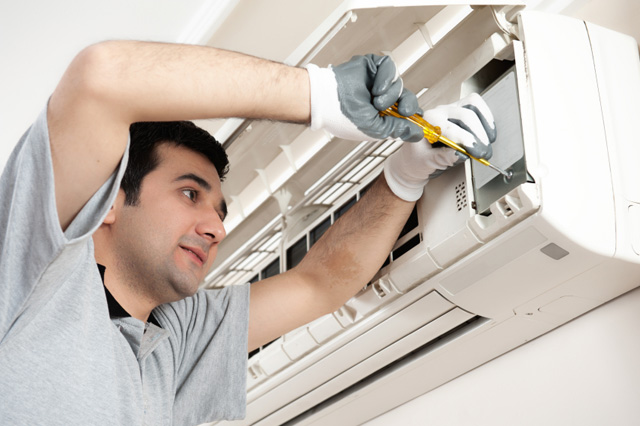There are many simple ways to improve the health of your air conditioning system. Many are inexpensive and can add value to your home. They can also prevent AC repair costs. For example, many people focus their attention on the thermostat and filters, but these things are often not the source of problems. Spend some time outside raking leaves, removing vines and other debris that may be blocking the fan, and being aware of the sounds and behaviors of your cooling system.
Identifying clogged air conditioner fins
If your AC is not cooling your home as it should, it may be due to clogged air conditioner fins. These delicate parts are prone to getting clogged with debris and dirt. This will reduce the efficiency of the entire AC. This is because the AC will have to work harder to produce cooled air. As a result, it will wear out faster.
First, look for unusual noises coming from the air conditioning system. ACs are usually quiet, but if they begin to make unusual noises, you might have an underlying problem. The noise could be caused by road debris, or it could be the result of a major component failing. A grinding noise is indicative of worn compressor clutches, while a squealing sound comes from worn bearings.
Replacing a failed condenser fan
If you’re having trouble with the cooling of your air conditioner, you may need to replace the condenser fan. However, before you do so, you must know how to replace it. To begin, remove the condenser fan and any other parts that it may be attached to. You will also need to remove the mounting bolts if necessary. Once you’ve removed all of the old parts, carefully slide the new condenser fan assembly into place. If you’re using a reused condenser fan, make sure you’re connecting it to a new power source.
Check that the fan motor is turning freely, and that the motor is not seized. If the fan is humming or is stuck in its position, it could mean that the motor or capacitor is not working properly. If you’re unsure, contact a licensed HVAC technician.
Checking the AC unit’s cord for damage
Checking the AC unit’s cord for wear and damage is an important part of routine maintenance. Damage to the cord can mean the unit is not functioning correctly. Make sure that you check the cord for damage by unplugging the unit and visually inspecting it. The cord should not have any frayed edges. In addition, check the circuit breaker to make sure it is in good condition.
Damaged AC cords are a danger to your safety. They can cause the AC to trip the circuit breaker and damage other equipment. You should also be wary of bare wires around AC units. You could accidentally touch one and get shocked. Also, if the wires are too exposed, they can contact water or another live wire, which could damage the unit. This is why you should avoid touching the wires when checking the AC. The cords can be hidden inside the wall or pathways, so you may not be able to spot them.
Checking for leaks in the air ducts
Leaks in the air ducts are not always obvious, but they can contribute to poor cooling. These leaks can also cause the cost of energy to rise. Leaks in the air ducts can also interfere with the free air movement in the ducts.
To check for leaks, you can place an incense stick or smoke pencil under the ductwork. Slowly move it along the ductwork. If you notice smoke moving in different directions, it means there is a leak in the air ducts.
You can also use mastic to seal leaks in the air ducts. This will fill up the gaps and harden into a cement-like substance. You can also use a fog machine if you can’t see the leaks with your naked eye. This machine can help you locate the leak in the air ducts.
Checking for power surge protection
Power surge protection is an important part of ensuring that your air conditioner is functioning properly. It can protect your home from a surge of voltage by diverting extra power into a grounding wire. It also protects the wiring inside your house from any damage. Power surges can be caused by damaged wiring or circuit breakers.
A surge can damage the components in your HVAC system, and you don’t want that to happen. To ensure your home is safe, ask your AC repair Arlington Texas service provider to install surge protectors. This simple precaution can save you thousands of dollars in repair costs.


Comments are closed.